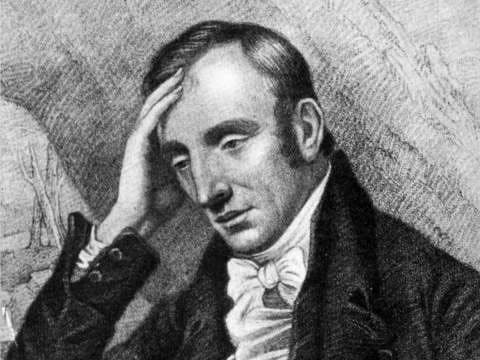“Sonnet to the Pupils of the Hindu College” was published in 1831. It is a poem that Derozio dedicated to the students he had taught during his tenure at the Hindu College. It talks about the great benefits that acquiring an education will have in these students’ lives. However, it also makes a point about the nobility of the teaching profession. This is not immediately recognized in the poem. Still, a close reading of its text will confirm that it was part of Derozio’s intention in writing this poem to speak of the greatness of the British administration’s so-called civilizing mission.
About the Poet
Henry Derozio, whose full name was Henry Louis Vivian Derozio, was one of the first Indian educators to disseminate Western learning and science among the young men of Bengal. He was the assistant headmaster of the Hindu College in Calcutta. He was also a poet. Derozio was the son of an Indian father and an English mother. Greatly influenced by the English Romantic poets, he began publishing patriotic verses when he was just 17. This immediately brought him to the attention of the intellectual elite of Calcutta.
In 1826 Derozio was appointed instructor at Hindu College, where his reportedly brilliant teaching influenced his students and won him their loyalty. Two years later, his students organized the Academic Association, a debating society that drew both Britons and Indians to discussions of religion and philosophy. In the spirit of English rationalism, Derozio criticized the supposedly irrational social practices and the discriminatory religious beliefs of orthodox Hinduism. Accused of irreverence by his students’ traditional Hindu parents, he was forced to resign from the Hindu College by its directors in 1831. Derozio died the same year of cholera.
Sonnet to the Pupils of the Hindu College: Setting
This poem is set within the realm that is jointly inhabited by teachers and students. One can call this the realm of higher education. Derozio clarifies that such a realm was not accessible to the Indian youth before the arrival of the British in India. He also says that it is this realm that is making it possible for the Indian youth to explore their full intellectual potential. It is also this realm that will provide them with a secure future and perhaps much fame. Derozio feels grateful to have played a part in creating such a realm within the Indian subcontinent.
Sonnet to the Pupils of the Hindu College: Annotations
Please note: N= noun, V=verb, Adj=Adjective, Adv=Adverb, P=Preposition
Expanding (V): Present participle form of the word “expand,” that is, to become or make larger or more extensive
Petals (N): Plural form of the word “petal,” that is, each of the segments of the corolla of a flower, which are modified leaves and are typically coloured
Gentle (Adj): Gradual
Loosening (V): Present participle form of the word “loosen,” that is, to make (something tied, fastened, or fixed in place) less tight or firm
Spell (N): A spoken word or form of words held to have magic power
Binds (V): Third person present tense of the word “bind,” that is, to tie or fasten (something) tightly together
Intellectual (Adj): Possessing a highly developed intellect
Stretch (V): (Of something soft or elastic) be made or be capable of being made longer or wider without tearing or breaking
Soft (Adj): Having a pleasing quality involving a subtle effect or contrast rather than a sharp definition
Circumstance (N): A fact or condition connected with or relevant to an event or action
Freshening (V): Present participle form of the word “freshen,” that is, to make (something) newer, cleaner, or more attractive
Showers (N): Plural form of the word “shower,” that is, a brief and usually light fall of rain, hail, sleet, or snow
Unnumbered (Adj): Not counted, typically because very great
Perceptions (N): Plural form of the word “perception,” that is, the ability to see, hear, or become aware of something through the senses
Shed (V): Cast or give off (light)
Influence (N): The capacity to affect the character, development, or behaviour of someone or something, or the effect itself
Worship (V): show reverence and adoration for (a deity)
Omnipotence (N): The quality of having unlimited or very great power
Joyance (N): Delight; enjoyment
Futurity (N): The future time
Weaving (V): Present participle form of the word “weave,” that is, to form (fabric or a fabric item) by long interlacing threads passing in one direction with others at a right angle to them
Chaplets (N): Plural form of the word “chaplet,” that is, a garland or circlet for a person’s head
Gain (V): Obtain or secure (something wanted or desirable)
In vain: Without success or a result
Sonnet to the Pupils of the Hindu College: Summary
This poem, as the title shows, is a sonnet. A sonnet consists of fourteen lines divided into an eight-line unit known as an octet and a six-line unit known as a sestet. The octet and sestet can form a single stanza (which is the case in ‘Sonnet to the Pupils of the Hindu College’) or appear as two separate stanzas. Since the fourteen lines of this Sonnet are not divided into stanzas, they are divided into meaningful segments for this summary in order to make this poem easier to follow and understand.
Lines 1 – 2:
“Expanding like the petals of young flowers
I watch the gentle opening of your minds.”
In these lines, the poet tells his students what effect education is having on them. Previously, they were closed-minded. However, education is making their minds open up. The poet compares this opening up with the blossoming of a flower when its petals spread outwards from its centre. The prospect of his students becoming more open-minded delights the poet.
Lines 3 – 6:
“And the sweet loosening of the spell that binds
Your intellectual energies and powers
That stretch (like young birds in soft summer hours)
Their wings to try their strength. O! how the winds.”
In these lines, the poet says that his students have immense potential for improvement but that this potential consists of their ability to use their intellect in order to exercise the faculty of reason. However, this potential was not fully accessible to the students before. Now, as a result of higher education, students are able to tap into that potential. The poet then goes on to compare the gradual release of his students’ potential with the way in which young birds expand their wings to their full span while learning to fly. In both cases, practice makes perfect and helps to increase capacity. Young birds become experienced fliers, and the poet can see his students developing their intellectual acumen before his very eyes.
Lines 7 – 10:
“Of circumstance, and freshening April showers
Of early knowledge and unnumbered kinds
Of new perceptions shed their influence;
And how you worship truth’s omnipotence!”
In these lines, the poet says that education is showing his students the way in which they ought to learn from every new experience in life. Often we face difficult circumstances, and at such times, we tend to lose hope. But the poet feels that every such circumstance is an opportunity to learn and grow. Such circumstances can come up at any point in life without prior notice, and so the poet compares them with the winds that unexpectedly rise up before a storm. However, his point is that we must always deal with all circumstances with courage and must never back down. Instead, we should understand what had gone wrong and learn to protect ourselves against such situations in the future. The poet then compares the education provided for Indian youth by the British with the first rains of springtime that can rejuvenate everything in their surroundings. Similarly, education can also rejuvenate young minds and provide them with a new and noble purpose in life. The poet also anticipates that all the new developments that the Indian youth are seeing in their country under British rule will positively influence them and inspire them to work for a better future. Lastly, the poet says that his students have been taught to hold true to the highest authority and that they have learned that lesson well.
Lines 11 – 12:
“What joyance rains upon me when I see
Fame in the mirror of futurity,”
In these lines, the poet says that he is sure his students will gain fame and fortune in the future as a result of the education they are receiving now. And he is very happy for his students, so happy, in fact, that his delight knows no limit, like innumerable drops of rain falling from the sky.
Lines 13 – 14:
“Weaving the chaplets you have yet to gain,
And then I feel I have not lived in vain.”
In these lines, the poet imagines himself weaving a crown of bay leaves for his students as he is sure they will gain such heights in the future. As he is weaving the crowns, he is filled with a sense of fulfilment. He feels that his having been a teacher has been a noble profession and that he has lived his life for a purpose – that of expanding the horizon of his students’ knowledge and paving the way for their future success.
You can also refer to the Sonnet to the Pupils of the Hindu College Complete Analysis.
Some online learning platforms provide certifications, while others are designed to simply grow your skills in your personal and professional life. Including Masterclass and Coursera, here are our recommendations for the best online learning platforms you can sign up for today.
The 7 Best Online Learning Platforms of 2022
- Best Overall: Coursera
- Best for Niche Topics: Udemy
- Best for Creative Fields: Skillshare
- Best for Celebrity Lessons: MasterClass
- Best for STEM: EdX
- Best for Career Building: Udacity
- Best for Data Learning: Pluralsight













